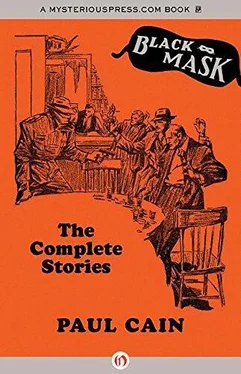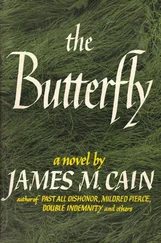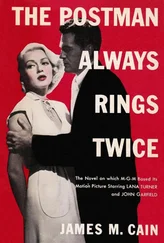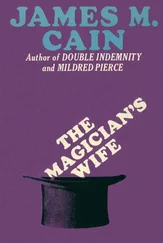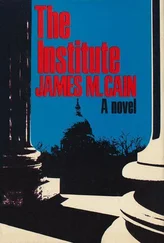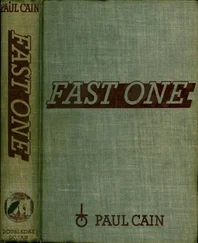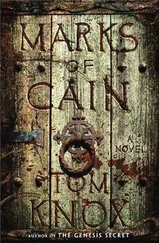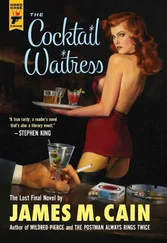Kells shook his head. “I don’t see it,” he said. “There are too many other angles.”
“You wouldn’t see it.” Cullen turned from the window, grinned. “You don’t know anything about feminine psychology.”
Kells said: “I invented it.”
Cullen spread his mouth into a broad thin line, nodded ponderously. “Sure,” he said, “there are a lot of boys sitting up in Quentin counting their fingers who invented it too.” He walked to the stair and back. “Anyway, you had a pretty good hunch when you left Exhibit A on the floor.”
“I’m superstitious. I haven’t carried a gun for over a year,” Kells smiled to himself.
Cullen said: “Another angle — she’s Rainey’s sister.”
“That’s swell, but it doesn’t mean anything.”
“It might.” Cullen yawned again extravagantly, scratched his arms.
Kells asked: “Yen?”
“Uh-huh. I was about to cook up a couple loads when you busted in with all this heavy drama.” He jerked his head toward the stair. “Eileen is upstairs.”
Kells said: “I thought the last cure took.”
“Sure. It took.” Cullen smiled sleepily. “Like the other nine. I’m down to two pipes every other day.”
They looked at one another for a little while.
A car chugged up the short curving slope below the front door, stopped. Kells turned and went into the semidarkness of the kitchen. A buzzer whirred. Cullen went to the front door, opened it, said: “Come in.” A little Irishman in the uniform of a cab driver came into the room and took off his hat. Cullen went back to the chair and sat down with his back to the room. He picked up his drink.
The phone rang.
Kells came out of the kitchen and answered it. He stood for a while with the receiver to his ear, staring vacantly at the cab driver. Then he said: “Thanks, kid,” and hung up. He put his hand in his pocket and took out a small, neatly folded sheaf of bills. “When you brought me here from the hotel about four o’clock,” he said, “I forgot to tip you.” He peeled off two of the bills and held them toward the driver.
The little man came forward, took the bills and examined them. One was a hundred, the other a fifty. “Do I have to tell it in court?” he asked.
Kells smiled, shook his head. “You probably won’t have to tell it anywhere.”
The driver said: “Thank you very much, sir.” He went to the door and put on his hat.
Kells said: “Wait a minute.” He spoke to Cullen: “Can I use your heap, Willie?”
Cullen nodded without enthusiasm, without turning his head.
Kells turned to the driver. “All right, Paddy,” he said. “You’d better stall for an hour or so. Then if anyone asks you anything, you can tell ’em you picked me up here and hauled me down to Malibu. No house number — just the gas station, or something.”
The driver said: “Right,” and went out.
“Our high-pressure police department finally got around to Stella.” He went back to his chair, sat down on the edge of it and grinned cheerfully at Cullen. “How much cash have you got, Willie?”
Cullen gazed tragically at the ceiling, and groaned: “Goddamn! When is this man going to ask me for my right eye?”
“It was too late to catch the bank,” Kells went on, “and it’s a cinch I can’t get within a mile of it in the morning. They’ll have it loaded.”
“I get a break. I’ve only got about thirty dollars.”
Kells laughed. “You’d better keep that for cigarettes. I’ve got to square this thing pronto and it’ll probably take better than change — or maybe I’ll take a little trip.” He got up, walked across the room and studied his long white face in a mirror. He leaned forward, rubbed two fingers of one hand lightly over his chin. “I wonder if I’d like Mexico.”
Cullen didn’t say anything.
Kells turned from the mirror. “I guess I’ll have to take a chance on reaching Rose and picking up my twenty-four Cs.”
Cullen said: “That’ll be a lot of fun.”
The first street lights and electric signs were being turned on when Kells parked on Fourth Street between Broadway and Hill. He walked up Hill to Fifth, turned into a corner building, climbed stairs to the third floor and walked down the corridor to a window on the Fifth Street side. He stood there for several minutes, intently watching the passersby on the sidewalk across the street. Then he went back to the car.
As he pressed the starter, a young chubby-faced patrolman came across the street and put one foot on the running board, one hand on top of the door. “Don’t you know you can’t park here between four and six?” he said.
Kells glanced at his watch. It was five thirty-five. He said: “No. I’m a stranger here.”
“Let’s see your driver’s license.”
Kells smiled, said evenly: “I haven’t got it with me.”
The patrolman shook his head sadly at the stupidity of humankind. “Where you from?” he asked.
“San Francisco.”
“You’re in the big city now, buddy.” The patrolman sneered at Kells, the car, the sky. He seemed lost in thought for a half-minute, then he said: “All right. Now you know.”
Kells drove up Fourth to the top of the hill. His eyes were half closed and there was an almost tender expression on his face. He swore softly, continuously, obscenely.
His anger had worn itself out by the time he had parked the car on Grand and walked down the steep hill to the rear entrance of the Biltmore. He got off the elevator at the ninth floor, walked past the questioning stare of the woman at the key desk, down a long hall, knocked at the door of Suite 9D.
Jack Rose opened the door. He stood silently, motionlessly for perhaps five seconds, then he ran his tongue over his lower lip and said: “Come in.”
Kells went into the room.
A husky, pale-eyed young man was straddling a small chair, his elbows on the back of it, his chin between his hands. His sand-colored hair was carefully combed down over one side of his forehead. His mouth hung a little open and he breathed through it regularly, audibly.
Rose said: “This is Mister O’Donnell of Kansas City... Mister Kells.”
The young man stood up, still straddling the chair, held out a pink hand. “Glad t’ know you,” he said.
Kells shook his hand cursorily, and said, “I stopped by for my dough.”
“Sure,” Rose said. He went to a cabinet and took out a bottle of whiskey and three glasses. “Why didn’t you pick it up at the store?”
Kells walked across the room and sat down on the arm of a big, heavily upholstered chair. O’Donnell was in his shirtsleeves. O’Donnell’s coat was lying across a table, back and a little to one side of Kells.
Kells said, “I want it in cash.”
Rose put the bottle and glasses down on a wide central table. “I haven’t got any cash here,” he said; “we’ll have to go over to the store.” He went towards the telephone on a desk against one wall. “I’ll order some White Rock.”
Kells said: “No.”
Rose stopped, turned; he was smiling. O’Donnell unstraddled the chair and sauntered in the general direction of Kells. His pale eyes were fixed blankly on Kells’ stomach. Kells stood up very straight, took two long, swift sidewise steps and grabbed O’Donnell’s coat. The automatic in a shoulder holster which had been under the coat clattered to the floor. O’Donnell dived for it and Kells stamped hard on his fingers, brought his right knee up hard into O’Donnell’s face. O’Donnell grunted, lost his balance and fell over backward; he rolled back and forth silently, holding both hands over his nose.
Rose was standing by the central table, holding the whiskey bottle by the neck. He was still smiling as if that expression had hardened, congealed on his face.
Читать дальше
